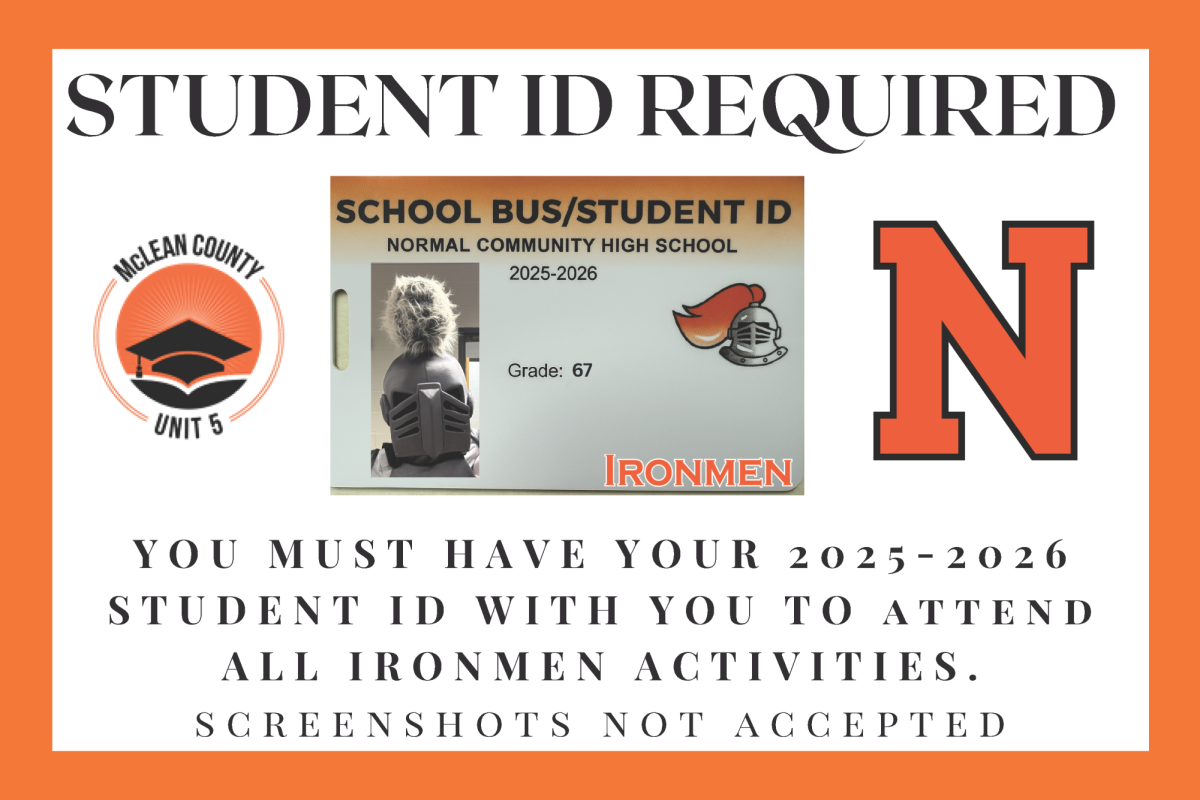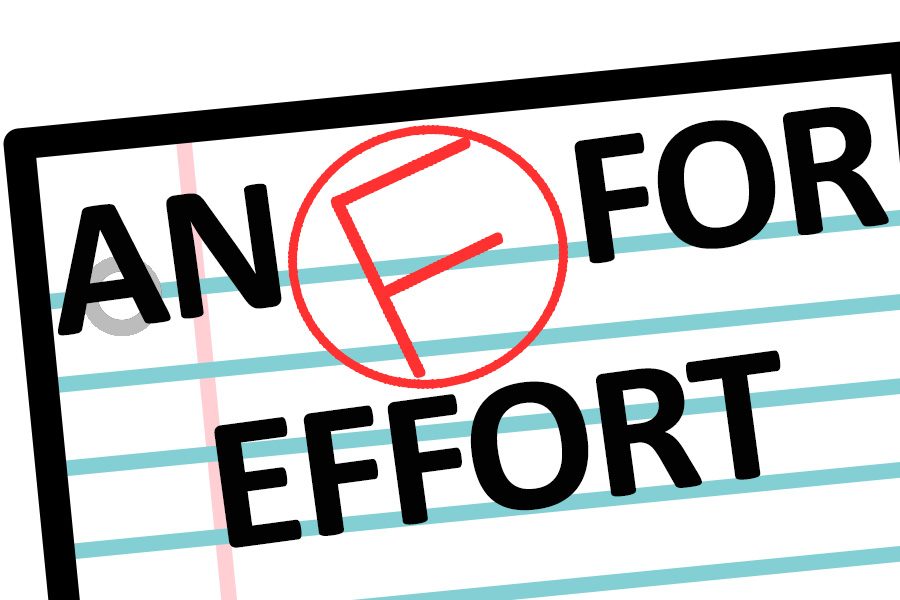Think about your favorite high school teacher of all time. What is that teacher like? Chances are, that teacher went the extra mile. They spent more time to explain something you didn’t understand, they were a shoulder to lean on when you were having a hard time, or they just treated you like an intelligent person.
Now, picture the worst high school teacher you’ve had. I’m willing to bet that there was someone who instantly popped in your head. What was it about them that really got on your nerves? Did they struggle to communicate clearly? Were they disorganized? They didn’t know their material? Did they demean you by insulting your ideas? Maybe they refused to help you when you needed it.
All across the country, there are educators just like your worst teacher who are guilty of a crime–they don’t put in as much effort as you do.
Staying up far too late working on an assignment only to find out that it wasn’t even going to be looked at. Being forced to write a paper that is never graded. These are common ailments of high schoolers, and it begs the question: Why is it that your time isn’t valued as much as the people who are assigning these tedious tasks? You work tirelessly on these projects, you lose sleep and you miss out on activities with your friends for nothing but carpal tunnel.
I, like many high school students, have always taken at least two or three honors or Advanced Placement classes in a semester. These classes move at an accelerated pace and have a very heavy workload, which is something that I understood when I signed up for classes. Coming into AP Language, I anticipated writing many essays to prepare me for the essay section on the AP test. The fact that I had to work so hard is not a problem, the problem is the lack of feedback I received. I had no idea if I was well prepared for the Advanced Placement test or not, and that is an issue.
This is an issue because, as New Jersey education professor J.J. Bellon states in his research paper Teaching from a Research Knowledge Base: a Development and Renewal Process, “feedback is an essential part of effective learning. It helps students understand the subject being studied and gives them clear guidance on how to improve their learning.”
Regardless of whether or not teachers choose to grade every assignment, they have a responsibility of providing the type of feedback mentions for any task that takes their students more than one day to complete.
If teachers decide to assign an essay or an expansive packet that they expect their students will have to take multiple days or sometimes even weeks to complete, they should be required to provide feedback. These larger projects typically are meant to assess content target areas. They are to show that you are learning what you are supposed to be learning in class. The projects prepare you for further instruction, so if you misunderstand the information or simply can’t complete the task successfully, not having feedback means that you’ll never know you struggle in that area. For instance, if your English teacher never provides feedback on your research paper and you cite your sources completely wrong, you won’t know you’re doing something wrong until is graded. At that point, the lack of feedback has directly and clearly hindered your ability to get the most out of your education.
I am not unrealistic. My mother is a high school English teacher, so I am not delusional enough to think that teachers don’t have lives outside of the time they spend in a school. My mother, like most teachers, has sponsored clubs, coached the track team and supervised dances. It is clear to me that teachers take their duties far past what is contractually expected from them, but that doesn’t mean they don’t have to provide extra feedback on assignments. I don’t expect a teacher to collect every vocab worksheet to correct every fill-in-the-blank answer. That is not the reason why little worksheets are assigned. The purpose of routine, small homework assignments are to, as professor Monica Fuglei states, foster learning and build up “highly desirable qualities” such as “responsibility and time management,” so most of the feedback given on small assignments should be given only when the student directly asks for it.
As a student, there is nothing more infuriating than wasting one night researching and two or three nights writing a multi-page paper only to never receive feedback or a grade. We are expected to spend eight hours at school working hard, but we are also expected to spend hours on homework each night.
Teachers have the responsibility to help their students by explaining what they are doing right and what they are doing wrong. A student’s time is just as important as a teacher’s, and we don’t deserve to be constantly stuck with busy work. Teachers should be ethically bound to provide feedback on the large projects they assigned.


![Community honors longtime coach Mr. Bryan Thomas before Oct. 3 game [photo gallery]](https://nchsinkspot.com/wp-content/uploads/2025/10/Thomas-6-1200x1200.jpg)























![Postgame: Drengwitz on Community’s 56-6 win over Champaign Centennial; staying unbeaten in Big 12 [video]](https://nchsinkspot.com/wp-content/uploads/2025/10/10.17_FBwChampCent56-6_POST_thumb.png)




















![Halloween candy cross section quiz [quiz]](https://nchsinkspot.com/wp-content/uploads/2022/10/Candy-cover-big-900x675.png)
![Average Jonah? [quiz]](https://nchsinkspot.com/wp-content/uploads/2022/05/average-jonah-900x600.png)






















![Week 7: Coach Drengwitz recaps the Ironmen’s win over Bloomington, talks Danville [video]](https://nchsinkspot.com/wp-content/uploads/2025/10/Vikings-feature-Image-1200x675.png)
![Week 5: Coach Drengwitz previews the Ironmen’s matchup vs. Peoria Manual, recaps Week 4 [video]](https://nchsinkspot.com/wp-content/uploads/2025/09/Week-5-v-Rams-1200x675.png)
![Postgame reaction: Coach Drengwitz on Community’s 28-17 Loss to Kankakee [video]](https://nchsinkspot.com/wp-content/uploads/2025/09/Week-4-postgame--1200x675.png)
![On the Spot: This or That – Halloween [video]](https://nchsinkspot.com/wp-content/uploads/2024/10/tot-Halloween-YT-1200x675.png)
![On the Spot: This or That – Fall favorites [video]](https://nchsinkspot.com/wp-content/uploads/2024/10/ots-fall-web-1200x800.png)
![On the Spot – Teachers tested on 2023’s hottest words [video]](https://nchsinkspot.com/wp-content/uploads/2024/01/On-the-Spot-Teachers-tested-1200x675.png)









